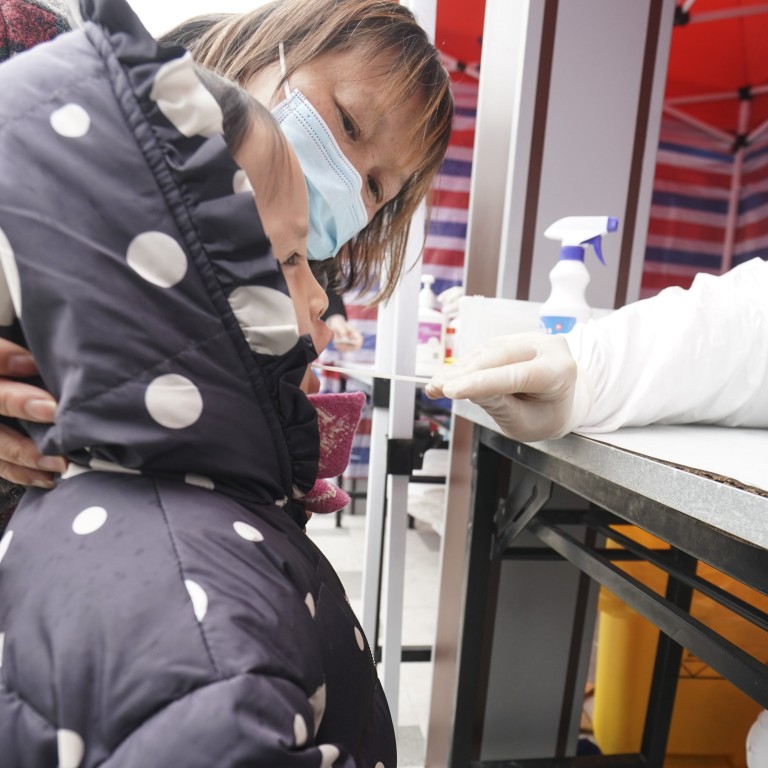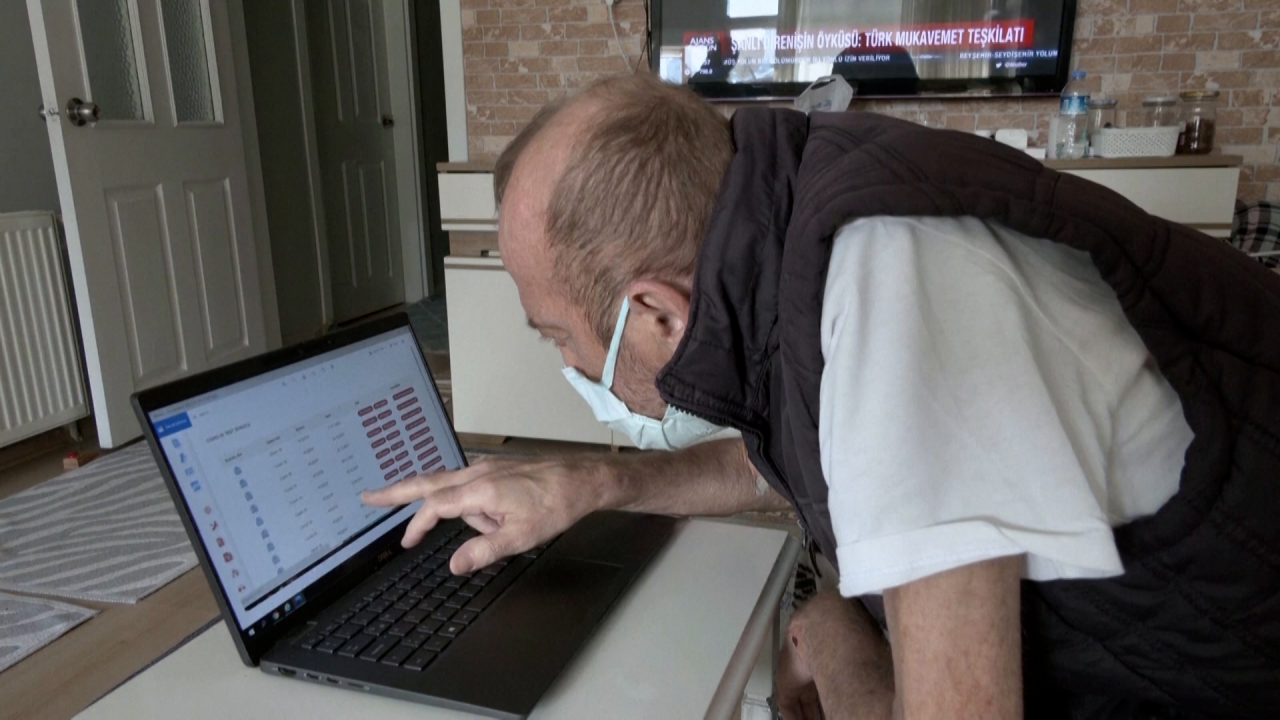
Suzhou and Hohhot coronavirus hotspots in China ‘triggered by imported cases’
- Health authorities say outbreaks are growing but caused by different strains of the virus
- 80 new cases reported – half of them in Inner Mongolian capital
Wu Liangyou, deputy director of the NHC’s disease control bureau, said the outbreaks in Hohhot and Suzhou were growing quickly and started by imported cases but the former was dominated by the Omicron variant and the latter by the Delta strain.
A handful of cases were also detected in the border communities of Wenshan, Honghe, and Ruili, in Yunnan province. Wu said the source of infection was still unknown and authorities were working to ensure infections did not spread to the rest of the country.
China is pursuing what it calls a “dynamic zero-Covid” policy and using mass testing – often millions of people at a time – to contain outbreaks.
But authorities have urged local governments to cordon off specific areas rather than impose citywide lockdowns unless there are community cases.
On Friday, the National Development and Reform Commission (NDRC) instructed all regional authorities to limit lockdowns and to keep public transport operating as much as possible.
The NDRC also urged local governments not to shut down or extend the closure of restaurants, supermarkets, scenic spots, and cinemas without adequate epidemiological research.
To help, it announced more tax incentives for the catering, retail, tourism and aviation industries. It will also guide online food delivery platforms to lower operating costs for catering businesses by reducing service fees or commissions.
Suzhou Covid-19 lockdown disrupts production at semiconductor base
In Suzhou, a major manufacturing hub, 41 areas have been identified as medium-risk but there has been no sweeping lockdown so far.
The city has reported 65 local cases since a person handling imported goods was diagnosed with the disease on February 10.
Passengers leaving Suzhou by train have to provide a negative test certificate taken within 48 hours before departure. The city also closed more highway entrances and ferries and added traffic checkpoints to curb the spread of the virus.
Cinemas, internet cafes and other entertainment venues have been asked to suspend their operations and classes for the city’s primary and secondary schools have been suspended.
The city said it had allocated 620 million yuan (US$98 million) for pandemic prevention and control this year, including subsidies for medical expenses incurred by confirmed and suspected patients.
Zhang Liang, a truck driver from Hubei province said many goods and trucks were stranded in Suzhou, resulting in big losses for their small logistics company.
“My colleague has already done two Covid-19 tests to leave the city but still failed,” he said.
“The order definitely won’t be delivered in time. This time it’s Suzhou but the next time it could be anywhere. It’s just extra expense.”
He helped Wuhan defeat Covid-19. Now he is on Hong Kong front line
Losses are being reported in other industries as well. During the week-long Lunar New Year holiday, tourism revenue fell 3.9 per cent from a year earlier, according to the Ministry of Culture and Tourism.
In January, activity in China’s services sector also expanded at the slowest pace in five months, as a surge in local coronavirus cases and containment measures hit new business and consumer sentiment, while employment also fell, according to the Caixin/Markit services purchasing managers’ index.
“I don’t think these micro policies could help our small business and self-employed individual,” Zhang said.


